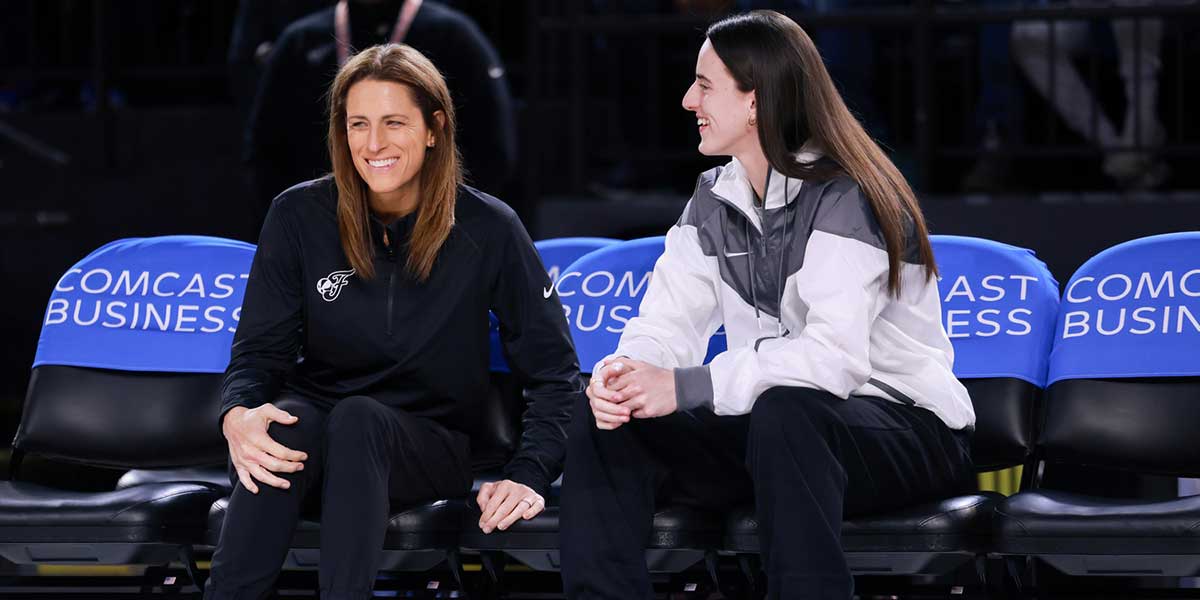Caitlin Clark has taken the sports world by storm ever since her record-breaking collegiate career at Iowa. Drafted by the Indiana Fever as the No. 1 overall pick, the expectation was that Clark would be the new face of the franchise and possibly the next global ambassador of women’s basketball. However, the reality behind the scenes appears to be far from the anticipated Cinderella story. Rumors have surfaced that Clark is refusing to work with specific trainers, citing disrespect not just from her own organization, but notably after comments made by former Fever coach Stephanie White. Let’s dive deep into the drama unfolding within the Indiana Fever camp, the rising tension between Clark and her support staff, and what it means for the future of this WNBA sensation.
The Promise and the Pressure
Caitlin Clark’s entrance into the WNBA was eagerly anticipated. Her analytical mind, elite shooting range, and passionate play energized a league ready for its next superstar. The Indiana Fever have struggled for relevance in recent years, and Clark was seen as their golden ticket. Practically overnight, season ticket sales soared, social media engagement spiked, and ESPN highlights featured more Fever games than in the entire previous season.
But this limelight comes at a cost. With the national attention on Clark, expectation became pressure, and any sign of tension behind the scenes would be magnified tenfold.
The Reported Disrespect
The current controversy reportedly began shortly after Clark’s first few games in a Fever jersey. Sources close to the franchise indicate that she felt “sidelined” when it came to decisions about her training, conditioning, and recovery routines. Unlike at Iowa, where Clark was at the center of every decision, the transition to the pros proved trickier.
It’s not unusual for rookies—even those as decorated as Clark—to have to endure a rite of passage. However, insiders suggest that instead of constructive guidance, Clark received a string of dismissive and disrespectful comments from both trainers and high-ranking personnel. She was, reportedly, told to “trust the process” and “know her place” rather than being consulted about what works best for her body and her development. This is a bold stance for any franchise to take, but especially for one banking its future on a generational athlete.
Stephanie White’s Comments: The Final Straw?
Things reportedly came to a head following public comments made by Stephanie White, a former Indiana Fever head coach and now a prominent analyst. Speaking on a sports radio show, White was sharply critical of Clark’s impact, questioning whether she was trying to “change too much too soon” and urging her to be “more humble in her approach to professional basketball.”
While the comments were not unprecedented—rookies before Clark have also faced their share of “learn your place” critiques—the timing and tone struck a nerve. Clark, who has never been shy about her confidence and high standards, reportedly took these remarks as deeply disrespectful, especially since White, as a former Fever leader, still has ties to the organization’s current staff.

Clark Refuses to Work With Trainers
According to sources, Clark’s response was swift. She began refusing to engage with specific Fever trainers assigned to her. Instead, she leaned on her personal support system from Iowa and a vetted team of athletic performance specialists she’s worked with since high school. Clark’s message was clear: she wanted to be treated as a partner in her own development, not a pawn.
Supporters argue that Clark is simply advocating for herself in a league that too often expects its rookies—especially female athletes—to “pay their dues” at the cost of their well-being. Critics counter that no player is above the team and that Clark’s approach reeks of entitlement.
The Fever’s Dilemma
From an organizational standpoint, the Indiana Fever are in a bind. They cannot afford to alienate their star rookie, for both performance and business reasons. At the same time, caving to the demands of a newcomer—no matter how talented—may risk undermining team cohesion and the authority of their coaching and medical staff.
The story has opened an uncomfortable debate in sports: When does “confidence” cross over into “demanding diva,” and how do we separate necessary self-advocacy from disruptive entitlement? For women athletes, this conversation is even more loaded. Men are often lauded for taking charge of their careers; women, unfortunately, are called “difficult.”
Fever news: Stephanie White, Indiana unsure about Caitlin Clark timetable
The Bigger Picture: Athlete Empowerment
Clark’s refusal to work with certain trainers isn’t just a tabloid drama. It signals the growing trend of athlete empowerment sweeping across every level of basketball. NBA stars like LeBron James and Kevin Durant have long been known for building their personal teams and taking charge of their health, nutrition, and branding. The WNBA and its players’ association have spent years fighting for better pay, resources, and respect.
For Caitlin Clark, whose commercial value already rivals some NBA players, exercising this kind of control is both a natural evolution and a risky move. The hope, among her fans and feminist advocates, is that it will set a new standard—one where players are heard, respected, and made true partners in their careers.

Where Do We Go From Here?
The Indiana Fever have publicly downplayed any tension, simply stating they “fully support Caitlin and all our players.” Privately, sources admit there is ongoing dialogue between Clark, her representatives, and the organization’s leadership.
For now, the bigger question is less about whether Clark will play the next game than about what her stance represents. Is this the growing pain of a new superstar learning to navigate the professional limelight—or is it the start of a player-driven revolution within women’s sports?
Regardless, one thing is clear: Caitlin Clark will not back down from advocating for herself, and the WNBA—like its up-and-coming superstar—is entering a bold, uncharted new era.